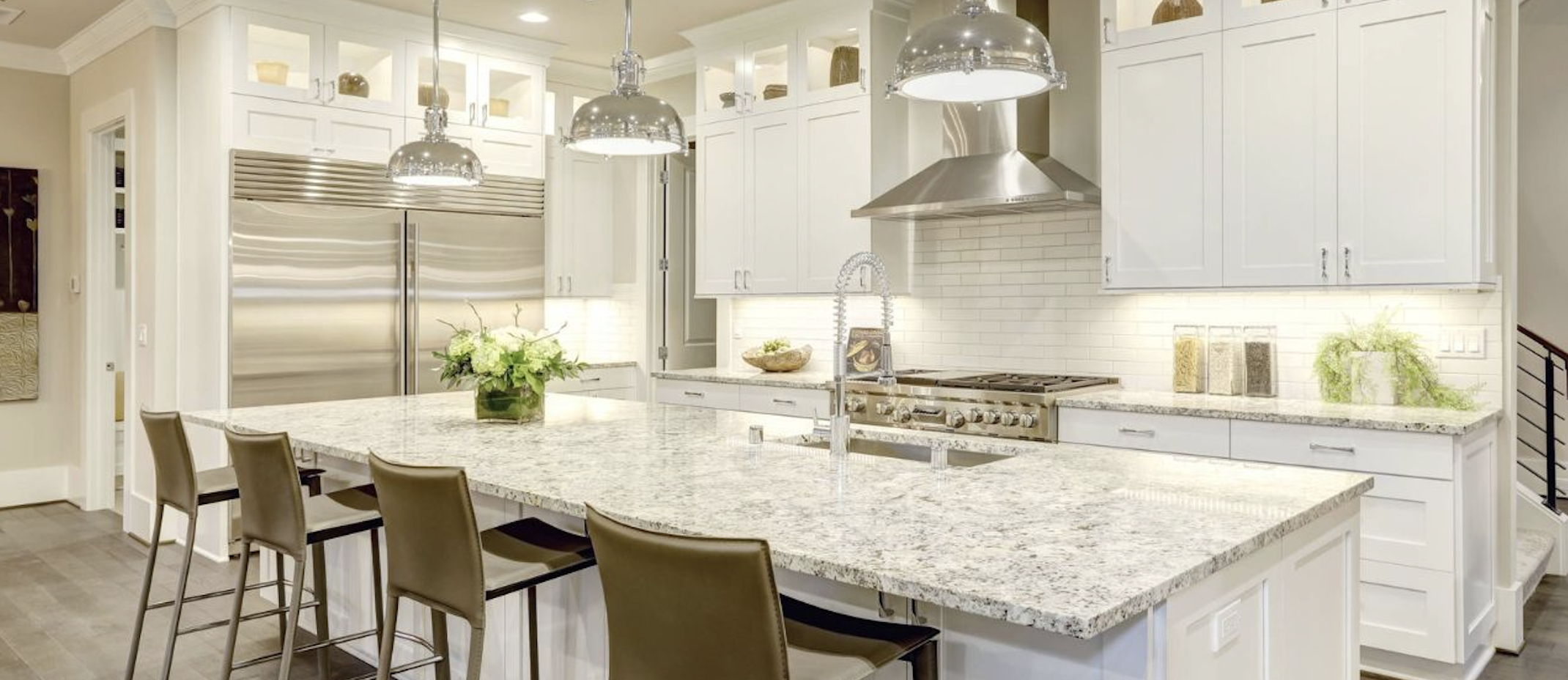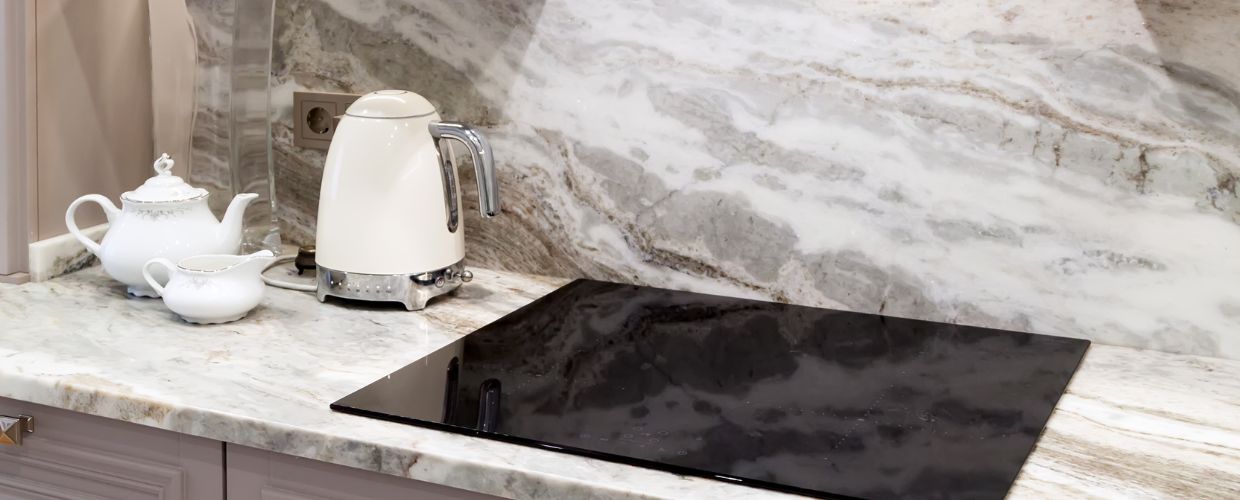On average, the cost of granite countertops is slightly higher than quartz countertops with granite costing $107.61 to $120.44 per square foot vs quartz at $90.69 to $116.23 per square foot. However, actual installation and material costs will depend on the size and complexity required by the project.
For the most accurate quote on granite or quartz countertops, reach out to GranitePro today! Our team of estimators can provide you with point-by-point quotes to help you understand the real costs associated with your next countertop project.
| Material Type | Quartz Price Range (per square foot) | Granite Price Range (per square foot) |
| Basic | $55 – $65 | $50 – $60 |
| Mid-Range | $65 – $95 | $60 – $90 |
| High-End | $95 – $150+ | $90 – $150+ |
Which Is Better For Countertops, Quartz Or Granite?
Neither option is “better”.
Quartz and granite countertops are both popular choices for kitchen and bathroom surfaces, each offering unique advantages and characteristics.
Granite, a natural stone, is prized for its one-of-a-kind patterns and organic beauty, with each slab featuring distinct variations in color and veining. This natural uniqueness appeals to many homeowners seeking an authentic, luxurious look.
Granite is highly durable and heat-resistant, making it ideal for busy kitchens. However, it requires periodic sealing to maintain its stain resistance and can be prone to chipping if subjected to heavy impacts. This can vary depending on the specific granite chosen.
On the other hand, quartz is an engineered stone composed of ground natural quartz mixed with resins and polymers. This manufacturing process allows for a wider range of colors and patterns, including options that mimic natural stone, and ensures consistent appearance across slabs.
Quartz is non-porous, making it highly resistant to stains and bacteria without the need for sealing. It’s also extremely durable and less likely to chip or crack compared to granite.
However, quartz is less heat-resistant than granite and can be damaged by extreme temperatures.
All in all, both quartz and granite are good options for your countertops, the decision is largely personal preference as both are relatively low maintenance options.
To understand which option is right for you, reach out to us today for a free consultation.

What Are The Disadvantages Of Granite Countertops?
While granite countertops are popular for their durability and aesthetic appeal, there are some disadvantages to consider:
Cost: Granite countertops can be expensive, particularly for high-end or exotic varieties. The cost includes not only the material but also the installation, which can add significantly to the overall expense.
Porosity: Granite is a natural stone, and as such, it is porous. This means it can absorb liquids, leading to potential staining if spills aren’t cleaned up promptly. Regular sealing is required to maintain its resistance to stains and moisture.
Maintenance: To keep granite countertops in good condition, they need to be sealed periodically, usually once every 3-5 years. Failing to reseal can lead to the surface becoming more susceptible to stains and bacteria. Depending on the granite you choose and the sealer used by your fabricator, regularity of sealing can vary.
Weight: Granite is a very heavy material, which can require additional structural support for cabinets and overhang. This adds to the complexity and cost of installation.
Cracking and Chipping: While granite is very hard, it is not immune to damage. Heavy impacts, particularly on edges, can cause chipping or even cracks, which can be difficult and costly to repair.
Limited Color Options: Although granite offers a range of natural colors and patterns, it doesn’t provide as much consistency and quartz. This can limit design flexibility for some homeowners.
What Are The Disadvantages Of Quartz Countertops?
Heat Sensitivity: Unlike natural stone, quartz countertops are not as heat resistant. Placing hot pots or pans directly on the surface can cause discoloration or damage, so using trivets or hot pads is necessary.
Lack of Natural Look: Although quartz can mimic the appearance of natural stone, some people find that it lacks the depth and unique patterns that natural materials like granite or marble offer. The uniformity of quartz may not appeal to those seeking a more organic, one-of-a-kind look.
Limited Outdoor Use: Quartz countertops are not recommended for outdoor use because prolonged exposure to UV light can cause the colors to fade and the resin in the quartz to break down. This limits its use to indoor applications.
Takeaway
Quartz and granite countertops are similarly priced, with granite typically being slightly more expensive due to its status as a natural stone. The higher cost of granite is often attributed to the quarrying process and the unique patterns and colors that only nature can create. When deciding which material is right for your countertops, it ultimately comes down to personal preference. Both materials offer durability, beauty, and long-term value, but they differ in terms of appearance, maintenance, and other characteristics.
For more personalized guidance on choosing between quartz and granite, reach out to the experts at GranitePro today! Their knowledgeable team can help you make the best decision for your home.


